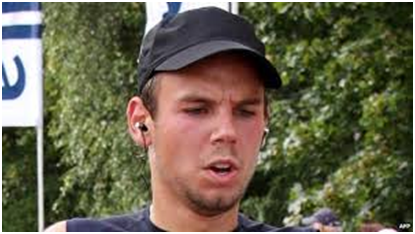Urgent: Pilots Need Psychiatric Attention
Germanwings co-Pilot: Everyone will know my name

The recent tragedy -the air crash in Europe leading to the deaths of 150 people- should serve as an eye opener for all of us. We must extend our deepest heartfelt condolences to the families of the bereaved. But it is the revelations as to what in all likelihood resulted in this tragedy that should alert us as to what needs to be done-with immediate effect! I maintain that this ghastly mishap was eminently avoidable.
To elaborate on the last point, I shall delve into my own personal experiences which shall indicate of the priority that we have accorded to the psychological aspects of aviation medicine thus far.
I had decided to embark on training as an aviation medicine examiner after qualifying as a psychiatrist and obtaining a private pilot's licence. The Royal Air Force Centre in Farnborough used to run short term courses enabling medical practitioners to obtain a Certificate in Aviation Medicine which entitled them to be designated aviation medicine examiners for pilots,air crews and air traffic controllers.
I vividly recall posing an interrogatory to one of my instructors Wing Commander Bagshawe as to why the psychological aspects of these medical examinations were downplayed. He was gracious enough to take my point and expressed hope that this would be suitably addressed soon.
But my first hand experiences as an examiner belied this hope. Time and again,I was confronted with a situation where either a pilot or an air crew member or an air traffic controller would present problems which clearly needed either psychiatric attention or effective counseling which had its provenance in the high-pressure stressful situations the subjects found themselves under. A large percentage functioned effectively with help and no case for grounding was made out.
But I recall one instance where a worried crew member reported the mental condition of his chief steward to me who ,he stated,had 'gone off his marbles.' On examination,I found this man to be suffering from paranoid delusions-about his aircraft having a bomb in its luggage chamber.He had had his annual medical checkup only a month earlier. I was compelled to report him to his supervisor.
In another case, Dr.Sarsfield,a senior psychiatric colleague approached me visibly worried. He had come across a patient who suffered from violent mood swings as part of his bipolar illness ! Not all that remarkable and certainly manageable except for his profession;he was an air traffic controller at one of the busiest airports in the U.K.He had been through his annual medical and escaped through the safety net. And he did not wish his employers to be notified. There were clearly some very intense ethical issues of confidentiality and we impressed upon him and his spouse the need to look for another profession. He left the clinic and did not return. I must confess that I felt uneasy whenever I had to travel through the airport where he had been working.
But the broader issues we have to tackle are:
-psychological issues are not given the importance that is due in the aviation medicine examinations
-pilots,air-crews and air traffic controllers do suffer from psychological problems which need attention
-aviation medicine as a specialty needs to be more widely available than it it is at present now that air travel is poised to take over from surface transport in most developed countries
-the problem of shortage and non-availability of aviation medical experts is international.
It is about time that the medical councils of different countries gave consideration to inclusion of aviation medicine in the general curriculum during medical studies. And it is of paramount importance that the Civil Aviation Authority takes note of what has happened and institutes appropriate measures.



